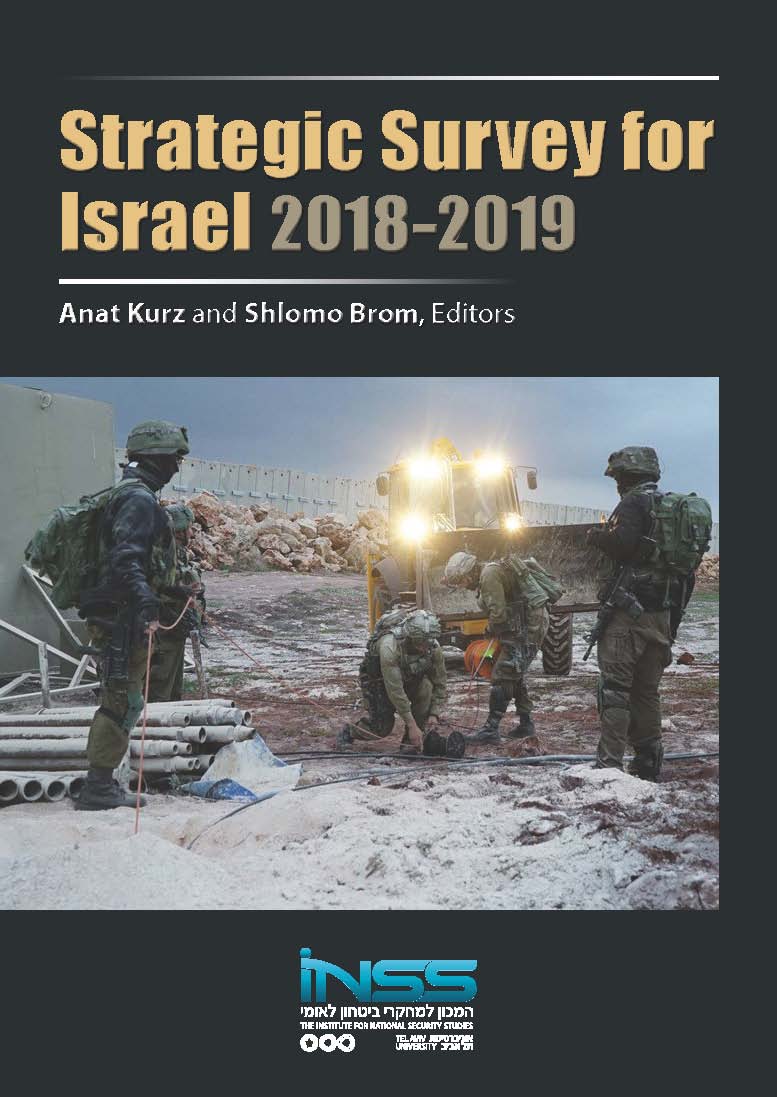Publications
Strategic Survey for Israel 2018-2019, The Institute for National Security Studies, December 2018

The Palestinian political system is currently mired in a deep crisis owing to a host of intertwined and mutually reinforcing factors. The focal point is the crisis pertaining to the Gaza Strip and the serious deterioration there over the past year. In the current reality, there is no magic formula on the horizon to dispel the political, security, and humanitarian problems of the Strip and counter their negative implications for Israel’s relations with the Palestinian Authority (PA). The Palestinian political system is keenly mindful of “the day after Abbas” (Abu Mazen), which has paralyzed its ability to make critical decisions. Another factor in the crisis is the unbridgeable gap between Fatah and Hamas and their inability to promote reconciliation. Also relevant is the Palestinians’ lack of confidence in the Trump administration, after it overturned a number of fundamental premises of the traditional United States approach to the Israeli-Palestinian conflict. Against this background, the chances of promoting a political initiative between the Palestinian system and the State of Israel are extremely slim and will remain so, even after the Trump administration places its “deal of the century” on the table.
For its part, the Israeli government has retained its policy of conflict management, based on the assessment that under the current conditions, and before clear Palestinian and regional power relations emerge that enable Israel to fortify its interests, the parties lack the reason, the motivation, and the wherewithal to advance processes that entail security and political risks. Inlight of the low chances of achieving a political breakthrough, Israel focuses primarily on responses to security risks. However, processes and trends in the Palestinian arena indicate an increasing chance of escalation, both in the West Bank and the Gaza Strip. This is joined by the risk that regional actors – such as Iran, Turkey, and Salafi jihadist groups – will attempt to accelerate the deterioration. In response to this complex challenge – the political impasse, the weakness of the Palestinian system, and the potential for escalation – the Institute for National Security Studies (INSS) has formulated A Strategic Framework for the Israeli-Palestinian Arena. The purpose of the framework is to improve Israel’s strategic situation and open up a wide spectrum of alternatives for political, demographic, and territorial separation from the vast majority of the Palestinian population, while maximizing Israel’s strategic advantages vis-à-vis its adversaries in the regional arena. An Israeli political initiative would improve Israel’s international standing, as well as its ability to take full advantage of the opportunity to establish formal relations with the pragmatic Sunni Arab states. Moreover, a new arrangement based on the measures and channels outlined in the INSS framework should prevent the slide into the complex reality of one state and result in a more stable political and security reality that will help Israel realize its destiny as Jewish, democratic, secure, and moral state.


